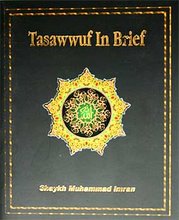Allah Subhanahu Wata’ala has emphasized in his pure and holy words regarding the importance of Halal sustenance. Similarly, this issue has been emphasized in many blessed Ahadith of Rasulullah Sallallahu Alaihe Wasallam.
Below is one verse amongst many with its interpretation.
Verse 1Below is one verse amongst many with its interpretation.
يا ايها الرسل كلوا من الطيبت واعملواصلحا اني بما تعملون عليم
O’ Messengers, eat of the good things and act rightly, I most certainly know what you do. 23:51
In this verse Allah Subhanahu Wata’ala mentions to the Prophets that the way in which We have given you the permission to use Our blessings and ordered you to worship, We have also commanded their nations that you and your Ummah should eat whatever is good and pure and thank Allah by doing righteous deeds. I am aware of what you are doing. I will reward you according to your worship and righteous deeds.
يا ايها الرسل
O Messengers!
When the Messengers of Allah are being addressed in this manner, then this decree holds greater importance for the respective nation of each Messenger. The ultimate aim of this verse is to make sure that the Ummah acts upon it.
In another verse the believers have been clearly ordered to do this. The Prophet of Allah has mentioned this subject matter in a Hadith.
Rasulullah Sallallahu Alaihe Wasallam once said:
O you people, Allah is good. He only accepts what is good. Allah has issued to the believers the same command that He gave to the Messengers, for He said:
O you Messengers, eat of the good things and do right. I am indeed aware of what you do. (23:51)
Allah also says:
O you who truly believe! Eat of the good things with which we have provided you. (2:172)
The Prophet mentions a man who undertakes a very long journey. He describes him as unkempt and covered in dust. He stretches his hands toward the sky crying ‘O my Lord! O my Lord!’ but his source of food, drink and clothing is unlawful and he sustains himself unlawfully, so how can he expect a response to his appeal? (Muslim / at-Tirmidhi)
كلوا من الطيبت
Eat of the good things.
‘Tayyibat’ literally means clean and pure.
Qadhi Thana’ullah Panipaty writes in his Tafseer al-Mazhari that ‘tayyibat’ clearly means everything that is Halal.
Consuming pure items is an obligatory order. Haram is absolutely not permitted.
Others say ‘tayyibat’ may mean delicious or tasteful. In this case the meaning of the verse is to create ease, show permissibility and forbid asceticism.
Some scholars have written that ‘tayyibat’ means Halal, pure and healthy.
Halal, means disobedience of Allah is not committed.
Pure, means a person will not become ignorant of Allah and does not follow his own egos.
Healthy, means that it keeps him away from his own desires and safeguards his intellect. (Tafseer al-Mazhari)
واعملواصلحا
And work righteous deeds.
In this verse we find that every Messenger in his time was given two advices amongst many; 1) to eat Halal and 2) to do righteous deeds.
By mentioning these two commands after one another, it is an indication that eating Halal has a great affect in being able to do righteous deeds.
When ones sustenance is Halal, it will enable him to do good deeds and when one consumes Haram, it will prevent him from doing righteous deeds even if one intends to.
Righteous deeds means to fulfil the command of Allah in the way it has been ordered solely for the pleasure of Allah.
In conclusion, Allah has commanded every messenger not to eat anything which is Haram but eat Halal and do righteous deeds.
Allamah Ibn Kathir Rahemahullah writes ‘Verily Halal helps to do good deeds’. In the verse, Allah is not mentioning a certain taste or colour but he is saying eat that which is Halal.
It is narrated in a Sahih Hadith that the Prophet of Allah said, “Every Messenger was a shepherd.” The companions asked, “Even you O’ Prophet of Allah?” The Prophet replied, “Even me, I used to graze the sheep of the people of Makkah in exchange for a few Qiraat.”
This explains that Rasulullah sallalhu alaihe wasallam worked hard for halal earnings.
It is also mentioned in the Hadith that the Prophet Daud Alaihis Salam used to eat from the money he earned whilst working.
At the end of the verse, Allah says ‘do not think even for a moment that we are unaware of what you do because “اني بما تعملون عليم” I most certainly know what you do.




No comments:
Post a Comment